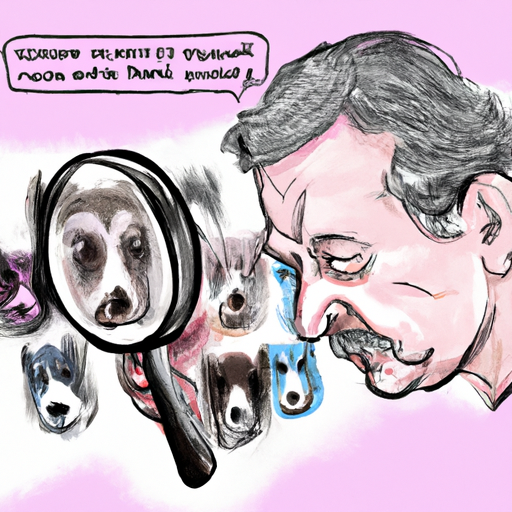Most dog owners consider their pet’s wet, shiny nose as a sign of good health. But what happens when this nose changes color? In this article, we will explore the reasons behind this phenomenon and what you, as a caregiver, can do about it.
1. Understanding Your Dog’s Nose Color
Your dog’s nose can naturally be black, pink, or a mix of both, depending on their breed. The nose color is determined by the presence of melanin. However, changes in your dog’s nose color can occur due to several reasons.
Normal Changes
Your dog’s nose may change color based on factors such as temperature and exposure to sunlight. Some dog breeds have a ‘snow nose’ or ‘winter nose’ where their nose lightens during colder months and darkens during warmer months.
Medical Conditions
Certain medical conditions can cause a change in your dog’s nose color. These include Vitiligo, Discoid lupus erythematosus (DLE), and Nasal depigmentation. Each of these conditions has their own symptoms and treatments, which we will discuss later.
2. Medical Conditions that Cause Nose Color Changes
Vitiligo
Vitiligo is an autoimmune disease that causes a loss of pigment, resulting in white patches on the skin and sometimes the hair. In dogs, it can affect the nose, causing it to turn pink or white.
Treatment: Vitiligo is harmless and does not require treatment. However, dogs with this condition are prone to sunburn, so use dog-safe sunscreen or keep them out of direct sunlight.
Discoid Lupus Erythematosus (DLE)
DLE is an autoimmune disease that affects the skin, particularly the nose. Dogs with DLE may experience a color change in their nose, often accompanied by sores or ulcers.
Treatment: DLE is managed with medication and by avoiding triggers, such as sunlight.
Nasal Depigmentation
This condition causes the nose color to fade. It often occurs in older dogs or certain breeds like Golden Retrievers and Poodles.
Treatment: Like Vitiligo, this condition is harmless and does not require treatment. However, sun protection is recommended.
3. Non-Medical Causes for Nose Color Changes
Besides medical conditions, there are other reasons why your dog’s nose may change color. These include:
- Weather Changes: Some dogs experience a ‘winter nose’ where their nose turns lighter in cold weather and darkens in warm weather.
- Age: Just like humans, dogs can experience changes in their skin and hair color as they age.
- Injury: Injuries to the nose can cause temporary or permanent color changes.
- Allergies: Allergies to certain foods or substances can cause your dog’s nose to change color.
- Plastic Bowls: Some dogs are allergic to plastic and develop a condition called ‘plastic dish dermatitis’ that can cause the nose to change color.
4. When to Seek Veterinary Help
If your dog’s nose color change is accompanied by other symptoms such as lethargy, loss of appetite, changes in behavior, or if the nose is sore, it’s time to consult a vet. Additionally, if your dog’s nose color changes abruptly or for no apparent reason, it’s best to seek professional advice.
5. FAQ
Q: Can a dog’s nose change color with age?
A: Yes, as dogs age, they can experience depigmentation, causing their nose to turn pink or white.
Q: Is a red nose in dogs a sign of illness?
A: A red nose could be a sign of inflammation or infection. If your dog’s nose is red and they are showing signs of discomfort, consult a vet.
Q: My dog’s nose is changing color. Should I be worried?
A: Most changes in nose color are harmless. However, if it’s accompanied by other symptoms, it would be best to seek veterinary help.
Q: Can the color of a dog’s nose indicate its health?
A: While a wet, shiny nose is often seen as a sign of good health, the color of your dog’s nose isn’t a reliable health indicator. As we’ve discussed, many factors can cause a change in nose color.
In conclusion, changes in your dog’s nose color can be due to various reasons. While some are harmless, others may require medical attention. As a caregiver, you should keep an eye on your dog’s overall health and behavior, and if anything seems amiss, don’t hesitate to consult your vet.



